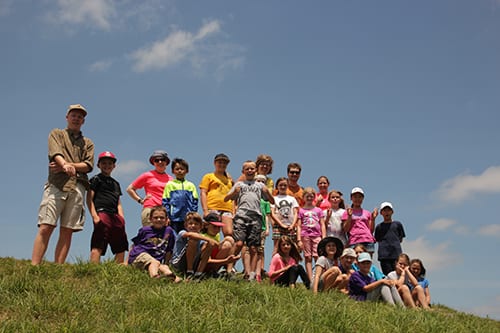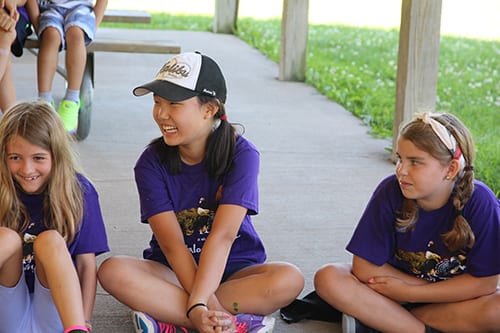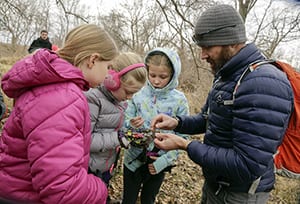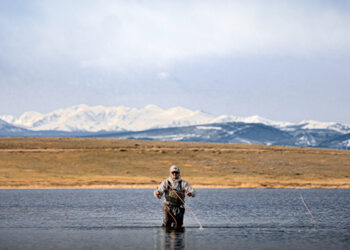From the Beak Brigade to the Osprey Camp to the Talon Troupe, the University of Iowa’s youth camps tend to sport bird names, due to the school’s Raptor Center. But the similarities don’t stop there. Meredith Caskey, the assistant director for the university’s recreational services, said their camps standout for another reason. “What sets us apart is we are always trying to learn along with the fun of being outside,” she explained.
The camps are equally recreational and environmental education. Campers will head outdoors, but they’ll also learn about the habitats found in Iowa, native species of the state, etc. Caskey said the balance of education and fun comes from having good staff. She looks for counselors who love working with children, love nature and typically have good energy.
Samantha Wallace, the campus recreation coordinator for youth and programming at the University of Arizona, said staff buy-in is a huge thing for the success of their camps that run during school breaks all year-long. In fact, a goal for Wallace is to have more and more returning counselors every year.
But first, she has to hire ones that get the job done. Wallace uses group interviews to get to know interviewees, and typically she will also have them do group activities. This can be giving them a piece of equipment and asking them to create a game with it, or coming up with an answer to why a babysitter is different than a camp counselor.
While she looks for people who will mesh with her existing team, Wallace said the personalities will differ, and for good reason. “You’re going to hire a wide range of counselors because you have a wide range of campers,” she said.
In terms of training staff, Courtney Kraemer, the previous campus recreation programming coordinator at the University of South Florida St. Petersburg, said her counselors combine their training with counselors of the College of Education’s Smart Camp. The training not only touches on typical topics like risk management and communication with parents/kids, but also on diversity, inclusion, how to handle different age groups, etc.
When it comes to managing risk, Kraemer said they have plenty to think about. Their camps have a lot of water time and involve trips to islands. They have plans for rescue detailed out for each location and for multiple scenarios. It also means knowing outside rules, a piece of advice Kraemer gave to other camp programs.
“Make sure you know any specific regulations. If there’s a special field trip or a unique feature you have, know what the actual legal requirements are for that,” added Kraemer. “So for us, it was this Coast Guard requirement of having a Coast Guard certified captain being your driver of the boat, and then having that limit of six campers on the boat because they were paid-for-hire passengers really changed our game plan for how we had to plan camp for the summer.”
Kraemer also said she recently took Ian McGregor & Associates Inc. SportRisk online class. Because of it, she has changed the camp’s waivers to informed consent, as the latter is more overarching and holds up better in legal cases.
At the University of Arizona, Wallace said on top of getting selected counselors HOV certified, they are also licensed by the State of Arizona Department of Health for child care. The yearly audit and licensing is based on everything from paperwork to the ratio of campers to counselors. It’s not a necessity, said Wallace, but it is good to hold oneself accountable in that way. She also suggested looking into the American Camping Association’s accreditation and resources.
Beyond staff and risk, Caskey said the keys to camp success are to be flexible, never stop learning and know what outcomes you want from your camp. “You can’t know everything that’s going to come up. Every summer, I learn something new,” she said. “And I think it is also really important to be humble and remember that we don’t know everything.”














